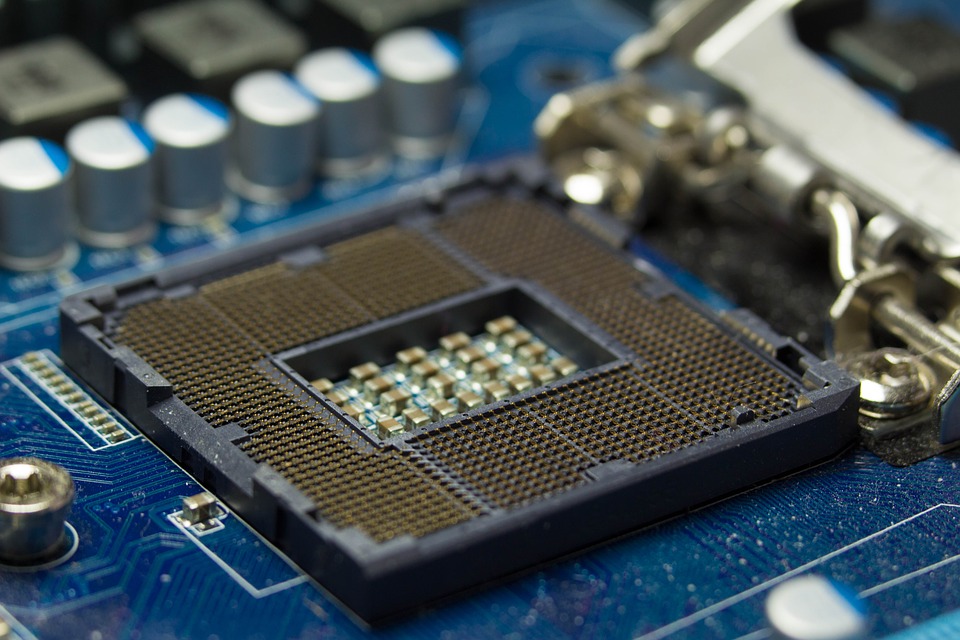Ever since the discovery of the Spectre and Meltdown vulnerabilities of Intel chips, the PC world has been on edge. Now, the industry can add yet another security flaw to that list.
The company calls the bug “Lazy FP state restore” while the researchers that discovered the bug call it “LazyFP.” Both cases refer to the same thing, which poses the potential for side channel attacks.
The security flaw was discovered by the joint efforts of Amazon and Cyberus Technologies researchers, Tom’s Hardware reports. They call it “LazyFP” because it directly pertains to CPUs that have lazy floating point unit (FPU) switching. It’s also the latest vulnerability that was discovered pertaining to the second generation of Spectre bugs.
When Intel was made aware of the matter, the company apparently tried to convince the researchers to hold off on disclosing the specifics on the matter. This makes sense since it would want to provide a solution to the problem by the time the public knows of it. Unfortunately for the chip maker, this development has come before it even finished dealing with the first generation of Spectre bugs.
In the case of the “LazyFP,” the disclosure of the flaw was initially scheduled for August. However, fears that rumors regarding the flaw would have given bad actors enough hints to take advantage of it forced the researchers’ hands.
As a result, Intel had to explain exactly what this latest vulnerability is all about and how it affects users, PC Gamer reports. It would appear that the biggest threat is the risk of sensitive information being stolen.
"System software may utilize the Lazy FP state restore technique to delay the restoring of state until an instruction operating on that state is actually executed by the new process. Systems using Intel Core-based microprocessors may potentially allow a local process to infer data utilizing Lazy FP state restore from another process through a speculative execution side channel," Intel revealed.



 Elon Musk’s Empire: SpaceX, Tesla, and xAI Merger Talks Spark Investor Debate
Elon Musk’s Empire: SpaceX, Tesla, and xAI Merger Talks Spark Investor Debate  Nintendo Shares Slide After Earnings Miss Raises Switch 2 Margin Concerns
Nintendo Shares Slide After Earnings Miss Raises Switch 2 Margin Concerns  Nvidia CEO Jensen Huang Says AI Investment Boom Is Just Beginning as NVDA Shares Surge
Nvidia CEO Jensen Huang Says AI Investment Boom Is Just Beginning as NVDA Shares Surge  Alphabet’s Massive AI Spending Surge Signals Confidence in Google’s Growth Engine
Alphabet’s Massive AI Spending Surge Signals Confidence in Google’s Growth Engine  Tencent Shares Slide After WeChat Restricts YuanBao AI Promotional Links
Tencent Shares Slide After WeChat Restricts YuanBao AI Promotional Links  SpaceX Updates Starlink Privacy Policy to Allow AI Training as xAI Merger Talks and IPO Loom
SpaceX Updates Starlink Privacy Policy to Allow AI Training as xAI Merger Talks and IPO Loom  Amazon Stock Rebounds After Earnings as $200B Capex Plan Sparks AI Spending Debate
Amazon Stock Rebounds After Earnings as $200B Capex Plan Sparks AI Spending Debate  SoftBank Shares Slide After Arm Earnings Miss Fuels Tech Stock Sell-Off
SoftBank Shares Slide After Arm Earnings Miss Fuels Tech Stock Sell-Off  SoftBank and Intel Partner to Develop Next-Generation Memory Chips for AI Data Centers
SoftBank and Intel Partner to Develop Next-Generation Memory Chips for AI Data Centers  SpaceX Prioritizes Moon Mission Before Mars as Starship Development Accelerates
SpaceX Prioritizes Moon Mission Before Mars as Starship Development Accelerates  SpaceX Seeks FCC Approval for Massive Solar-Powered Satellite Network to Support AI Data Centers
SpaceX Seeks FCC Approval for Massive Solar-Powered Satellite Network to Support AI Data Centers  Global PC Makers Eye Chinese Memory Chip Suppliers Amid Ongoing Supply Crunch
Global PC Makers Eye Chinese Memory Chip Suppliers Amid Ongoing Supply Crunch  Palantir Stock Jumps After Strong Q4 Earnings Beat and Upbeat 2026 Revenue Forecast
Palantir Stock Jumps After Strong Q4 Earnings Beat and Upbeat 2026 Revenue Forecast  Jensen Huang Urges Taiwan Suppliers to Boost AI Chip Production Amid Surging Demand
Jensen Huang Urges Taiwan Suppliers to Boost AI Chip Production Amid Surging Demand  Anthropic Eyes $350 Billion Valuation as AI Funding and Share Sale Accelerate
Anthropic Eyes $350 Billion Valuation as AI Funding and Share Sale Accelerate  Baidu Approves $5 Billion Share Buyback and Plans First-Ever Dividend in 2026
Baidu Approves $5 Billion Share Buyback and Plans First-Ever Dividend in 2026 































